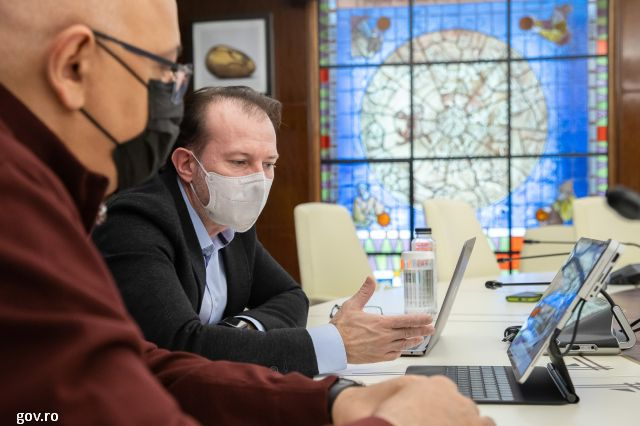Boosting resources for healthcare system
Romanian pm Florin Cîţu calls for increase in ICU beds and identifying new hospitals to treat Covid patients.

Roxana Vasile, 15.03.2021, 13:50
In parallel with the extension of the state of alert and
the launch of phase three of Romania’s mass vaccination campaign, which the
authorities want to speed up, preparations are being made for a new infection
wave. For the time being, despite a growth in the number of new daily cases, there
can be no talk of an accelerated surge. As a prevention, however, prime minister
Florin Cîţu on Sunday asked during a meeting of the taskforce managing and coordinating
the efforts to combat the pandemic for an increase in the number of intensive
care beds from 1,408 at the moment to 1,600 and for new hospitals to be identified
able to take over Covid patients.
The prime minister also asked for the provision of the
necessary medicine stocks and protective equipment for the staff in all
hospitals treating Covid patients. He also requested a clear plan in the event in
which some of the healthcare staff need to be relocated. Cîțu also emphasised
in a Facebook post: we mustn’t forget that the evolution of the pandemic depends
on each and every one of us, not only on the authorities. Let’s get the
vaccine, respect the protection measures and save lives! He instructed the State
Sanitary Inspectorate to report daily on the number of intensive care beds for
Covid patients around the country, to be compared with the reports sent in by
each hospital manager. At present, only 30 intensive care beds are apparently still
free, none of which in Bucharest.
Starved of funding for years, the Romanian medical
system is one of the most under-performing in Europe and the Covid pandemic
only shed more light on the problems it’s been facing: under-funding and
under-staffing, insufficient beds and unsuited conditions. At the beginning of
the year, a string of protests from healthcare workers raised the alarm over
what they see as the authorities’ indifference to the existing problems, from
addressing salary imbalances and unblocking posts to a national investment
strategy. Emblematic of these problems are the two tragedies that shook the
Romanian medical system only several months apart, when a fire at the intensive
care unit of the county emergency hospital in Piatra Neamț (in the north-east)
last November was followed at the end of January by another at Romania’s best-equipped
infectious diseases hospital in Bucharest. In both cases, patients died, being
burnt alive. (CM)






























